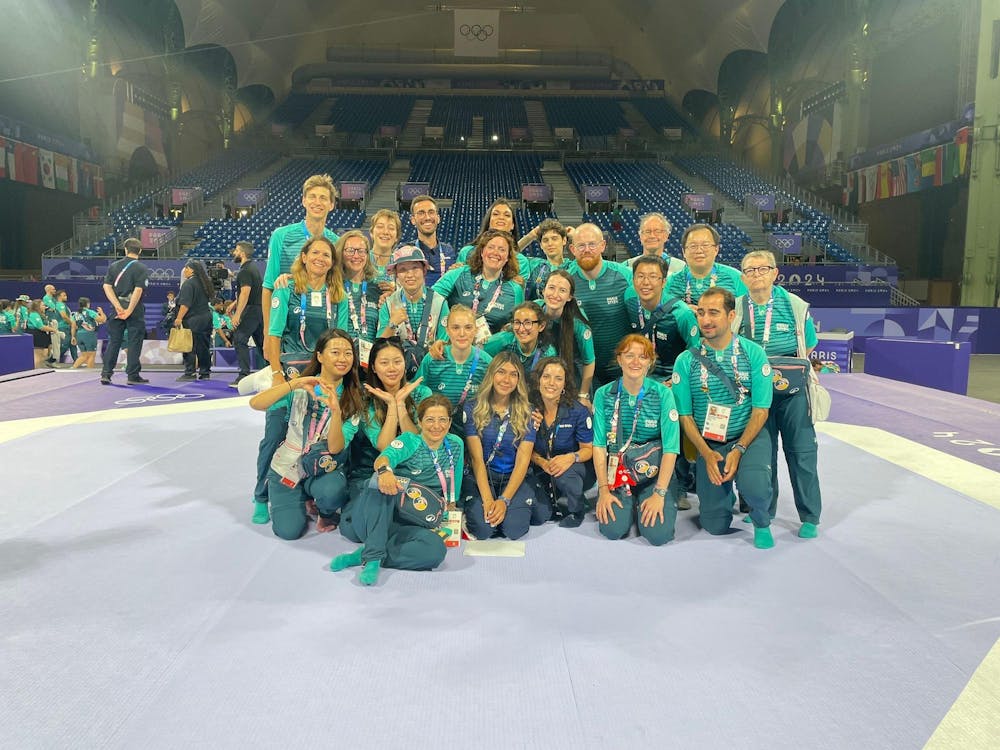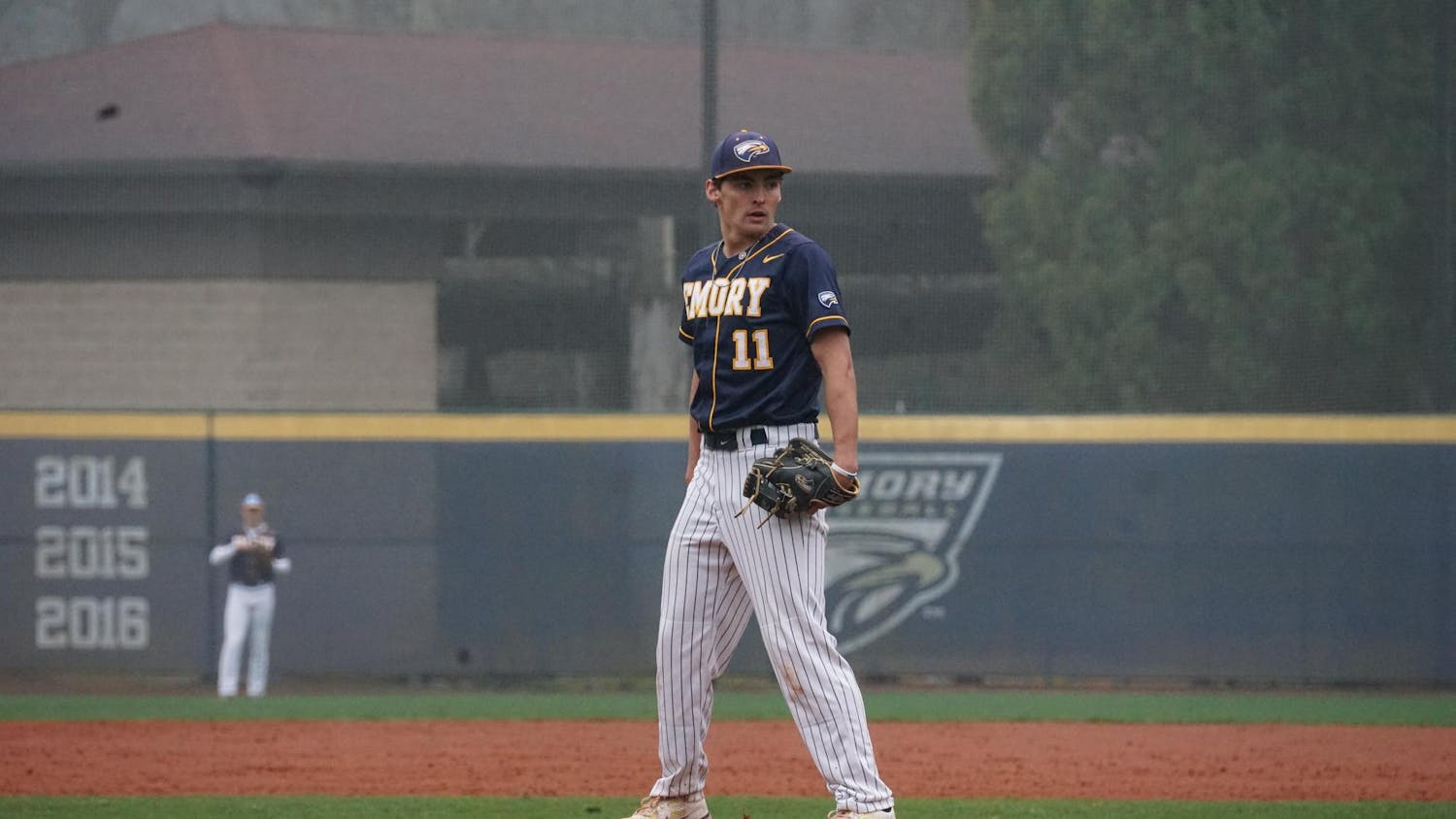What began as an application a year and a half ago became the experience of a lifetime for Marie Chastel (25Ox) when she volunteered at the 2024 Olympic Games in her hometown, Paris. The application was open to people around the world, and Chastel was selected as one of the 45,000 volunteers, whose ages ranged from 18 to nearly 70.
Chastel, who also plays on Emory University’s Oxford College women’s tennis team, arrived two weeks before the Games for volunteer training. Here she learned managing techniques for welcoming guests to the Olympic Family lounge and how to redirect them if the capacity was reached during a busier session. The volunteers also had to memorize nearly 30 assigned seating positions.
Stationed at the taekwondo and fencing lounge, Chastel worked nine-hour shifts where she checked accreditations at the entrance and directed people to their seats. Despite the long days, Chastel could not bring herself to leave the Games early.
“I would have a shift from 10:30 to 4 p.m., or something like that, but I would still stay for the finals because it’s still free,” Chastel said. “The atmosphere was amazing, especially when there was a French fencer or taekwondo player.”
While having the Olympics in your backyard is a once-in-a-lifetime opportunity, Chastel said she was concerned about Paris’ ability to host such a large-scale event.
“Paris during rush hours is a mess,” Chastel said. “So I was thinking for the Olympics, ‘Oh my God. What are we going to do? It’s going to be even more awful.’”
But that proved not to be the case. According to Chastel, many Parisians simply left the city to avoid the increased Olympic traffic, leaving Paris with uncongested streets and an easy-to-access metro. Chastel said she was proud to showcase her country in this way.
The Olympics are one of the biggest international athletic competitions in the world, but sports are only one part of the festivities. The Games include athlete and delegate traditions such as getting tattoos and exchanging personalized pins.
Chastel experienced the latter tradition when a Korean delegate from the World Taekwondo Federation gave her a pin outside the Olympic Family lounge. Chastel told him she had no prior experience with taekwondo and was unfamiliar with the rules, so the delegate explained them to her.
However, at any major sporting event, there were bound to be difficulties. Chastel described how some athletes’ bodyguards got too aggressive when the hall was crowded and said one of her fellow volunteers got pushed.
“What was happening behind the scenes, I wasn’t surprised by it,” Chastel said, “Honestly, for the Olympic family, it’s like having a waitress job. You have to take their complaints and direct them to their seats and manage the space.”
Chastel also had the opportunity to interact with celebrities. At one point, famed Formula One driver Lewis Hamilton was granted access to the Olympic lounge despite not having the proper accreditation. Chastel glimpsed actress Nina Dobrev and French footballer Zinedine Zidane among the star-studded crowd, and she even got a picture with actor Tom Cruise at the closing ceremony.
Oxford tennis coach Jonathan Bennett said he did not find out about Chastel’s volunteering opportunity until she said she was confirmed in the position.
“She’s a hard worker and very keen on sports in general,” Bennet said. “She kept it fairly quiet with most people about having applied for it. She just wanted to wait and see if she would [get it]. She’s very humble like that.”
Chastel’s doubles partner, Yolanda Yang (24Ox, 26C), said she was shocked her teammate got to volunteer at the Olympics and meet celebrities.
“I was also very happy for her because that’s just such an amazing opportunity,” Yang said.
Although Chastel would have loved to have worked closer to the athletes themselves as a volunteer, she found it rewarding to learn about the inner workings of the Olympics.
“It was good to know what was happening behind the scenes and participate in making the games better,” Chastel said.









